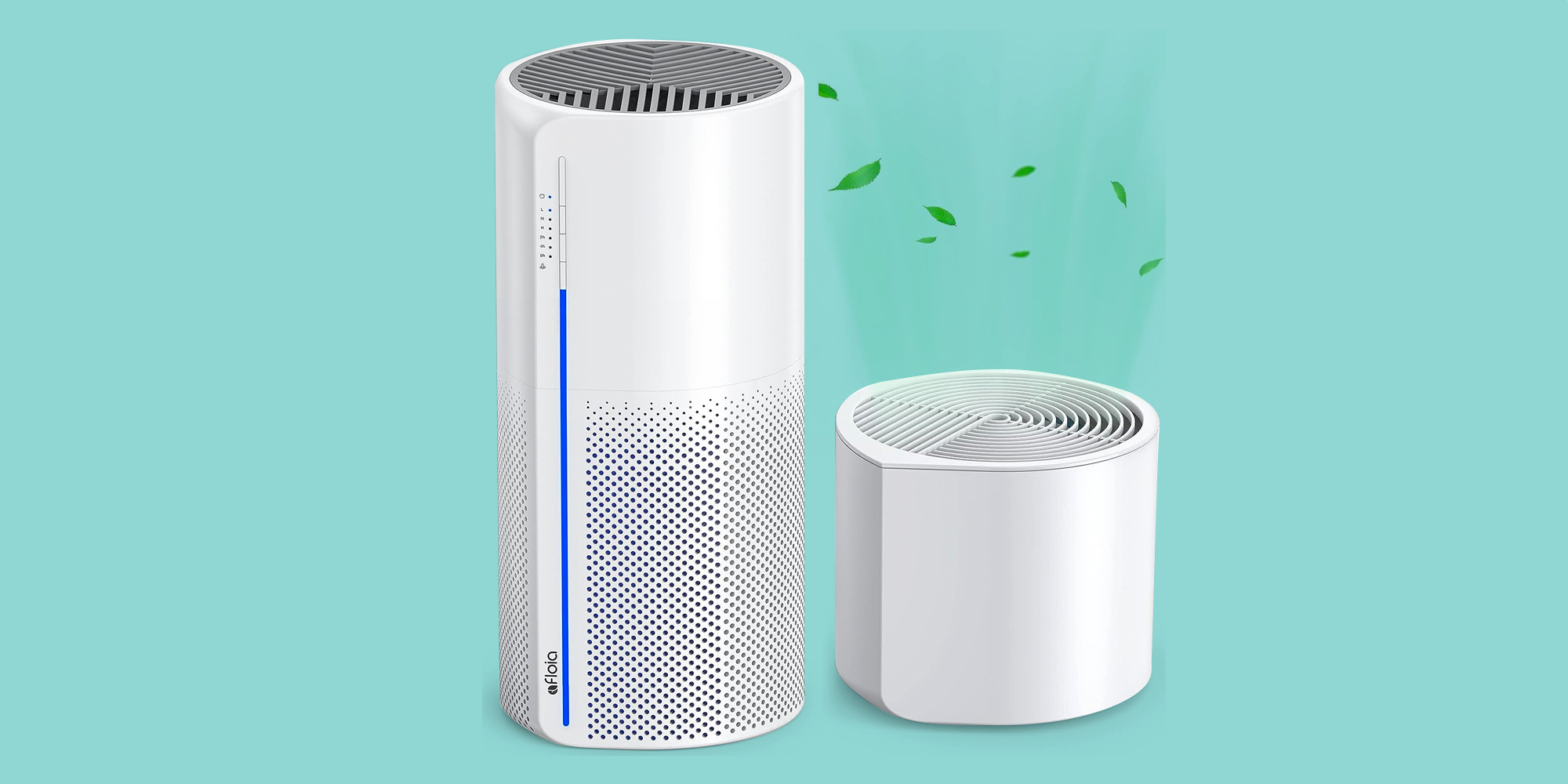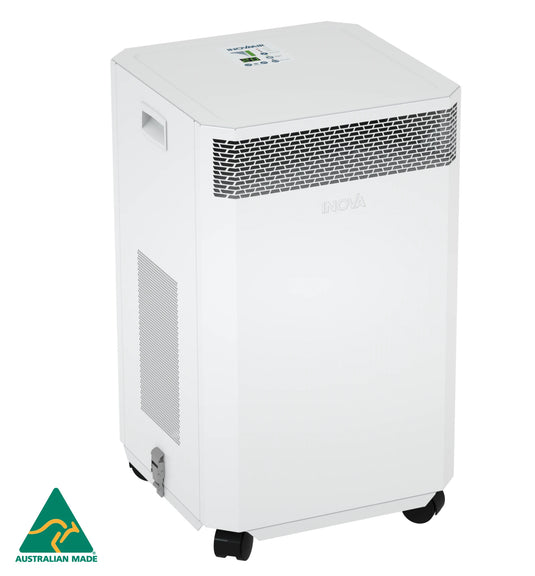Featured
Table of Contents
- – Recognizing Allergic Reactions and Triggers
- – Can Air Purifiers Assist With Allergies?
- – The Science Behind Air Purifiers and Allergies
- – Are Air Purifiers Right for You? Variables to...
- – Maximizing Air Purifiers for Allergies
- – Beyond Air Purifiers: A Multi-Pronged Techniqu...
- – Living a Breath Easier Life with Allergies

For allergy patients, springtime blossoms and fluffy animals can bring more sniffles and sneezes than happiness. Indoor irritants like dust termites, family pet dander, and pollen can ruin your breathing system, leaving you really feeling miserable. Air purifiers are commonly promoted as an option, appealing cleaner air and remedy for allergic reaction signs and symptoms. Are air purifiers absolutely worth the financial investment for allergy patients? This extensive guide checks out the scientific research behind air purifiers, their performance for allergic reactions, and the aspects to consider when deciding.
Recognizing Allergic Reactions and Triggers
To understand the function of air cleansers, let's initial delve into allergies and their triggers:
- The Allergic Reaction: Allergies happen when your immune system panics to a safe compound, like plant pollen or allergen. This response activates the launch of histamines, creating allergic reaction symptoms like sneezing, coughing, itchy eyes, and a runny nose.
- Usual Allergens: Indoor irritants include dirt mites, pet dog dander, mold and mildew spores, plant pollen that wanders inside your home, and also roach allergens. These airborne particles can aggravate your airways and set off allergy signs.
Can Air Purifiers Assist With Allergies?
Air purifiers function by pulling in air, filtering out toxins, and releasing cleaner air back into the area. Here's just how they can possibly profit allergic reaction patients:
- Trapping Allergens: HEPA (High-Efficiency Particulate Air) filters, a common type used in air purifiers, are very effective at catching airborne allergens like dust mites, pet dog dander, and plant pollen. By removing these triggers from the air you take a breath, air cleansers can help in reducing allergic reaction symptoms.
- Improved Air High Quality: Air purifiers can additionally get rid of other irritants from the air, such as smoke, dust, and unstable organic compounds (VOCs) This overall improvement in air high quality can be beneficial for allergy sufferers who are sensitive to these additional triggers.
The Science Behind Air Purifiers and Allergies
Research studies have shown that air purifiers can be valuable in reducing allergy symptoms. Here's a look at some key study searchings for:
- A 2019 testimonial published in the journal "Current Allergy and Asthma Reports" ended that air purifiers with HEPA filters can be effective in lowering allergic reaction symptoms and improving lifestyle for people with allergic rhinitis (hay fever)
- A 2018 research study released in the journal "Annals of Allergic Reaction, Asthma & Immunology" found that using an air purifier with a HEPA filter in the bedroom significantly lowered dirt mite allergen levels and improved rest high quality in individuals with bronchial asthma.
Nevertheless, it's crucial to note that study likewise recommends some restrictions:
- Air Purifier Coverage: Air purifiers are most efficient in the area where they are placed. Their effect on irritants in various other parts of your house could be minimal.
- Severity of Allergies: While air purifiers can assist, they might not be a complete option for serious allergic reactions. Medicines and various other allergy monitoring techniques could still be essential.
Are Air Purifiers Right for You? Variables to Take Into Consideration
Right here are some key elements to consider when determining if an air purifier deserves it for your allergies:
- Seriousness of Allergies: If your allergies are light and well-controlled with medication, an air purifier could not be needed. For those with modest to serious allergic reactions, an air purifier can be a valuable device in handling symptoms.
- Kinds of Irritants: Take into consideration the primary triggers for your allergies. Air purifiers are most efficient for airborne allergens like allergen, pet dog dander, and plant pollen. They might not be as useful for allergens like mold and mildew that grow on surfaces.
- Way of life and Atmosphere: If you have pet dogs, reside in a location with high plant pollen matters, or have problems concerning indoor air top quality, an air purifier can be useful.

Maximizing Air Purifiers for Allergies
If you make a decision to invest in an air purifier for allergies, here are some tips for maximizing its efficiency:
- Select a HEPA Filter: Look for an air purifier with a HEPA filter certified to catch particles as little as 0.3 microns.
- Right Size for the Area: Guarantee the air purifier has a Clean Air Delivery Price (CADR) that is suitable for the size of the room you intend to utilize it in.
- Positioning Issues: Position the air purifier in the room where you invest one of the most time, such as your bed room.
- Normal Filter Maintenance: Replace HEPA filters according to the supplier's directions to preserve optimal performance.
- Combine with Various Other Methods: Air cleansers are not a one-size-fits-all service. Combine them with various other allergy monitoring strategies like medication, routine cleansing, and allergen-proof bed linens.
Beyond Air Purifiers: A Multi-Pronged Technique to Allergy Administration

While air cleansers can be a valuable device in your allergic reaction arsenal, they are not a wonder drug (If you're looking to buy an Air Purifier then Air Cleaners Australia is the best destination.). An extensive method that incorporates air filtration with various other techniques is essential to achieving long-term allergic reaction relief. Below are some extra techniques to consider:
- Drug: Antihistamines, decongestants, and nasal corticosteroids, suggested by your physician, can successfully manage allergic reaction signs.
- Allergy Testing and Immunotherapy: Recognizing your certain allergens via allergy testing can lead the way for immunotherapy, a treatment that assists desensitize your immune system to irritants gradually.
- Air High Quality Administration: Regular cleaning with a HEPA-filtered vacuum and allergen-specific cleansing items can dramatically minimize dirt mites, pet dander, and other allergens in your house.
- Managing Moisture: Mold thrives in moist environments. Utilizing a dehumidifier can assist control humidity degrees and avoid mold growth, a typical interior irritant.
- Way of living Adjustments: If you have hatreds pollen, remaining indoors during top pollen seasons and bathing after hanging around outdoors can assist minimize direct exposure.
- Bedding and Surfaces: Enclosing pillows and mattresses in allergen-proof covers can considerably lower dust mite direct exposure. Frequently cleaning bed linen in warm water helps get rid of allergens.
Living a Breath Easier Life with Allergies
Keep in mind, handling allergic reactions is a continuous procedure. By recognizing your triggers, applying a multi-pronged technique, and possibly including an air purifier right into your strategy, you can significantly lower allergy symptoms and breathe easier.
Added Considerations:
- Consulting a Medical professional: If your allergies are severe or not well-controlled with medication and way of life changes, seek advice from a specialist for tailored suggestions.
- Air Top Quality Tracking: Consider making use of an air high quality monitor to track irritant levels in your house and readjust your management techniques as necessary.
- Long-Term Investment: A high quality air purifier can be a long-lasting investment in your health and wellness.
By taking a proactive technique and taking on a combination of these strategies, you can create a healthier and allergy-friendly environment, allowing you to take pleasure in a breath much easier life.
Table of Contents
- – Recognizing Allergic Reactions and Triggers
- – Can Air Purifiers Assist With Allergies?
- – The Science Behind Air Purifiers and Allergies
- – Are Air Purifiers Right for You? Variables to...
- – Maximizing Air Purifiers for Allergies
- – Beyond Air Purifiers: A Multi-Pronged Techniqu...
- – Living a Breath Easier Life with Allergies
Latest Posts
The Facts About Can Your Yeti Rambler Handle The Dishwasher's Heat? Uncovered
The Single Strategy To Use For Is The Dishwasher Safe For Yeti Rambler Drinkware?
The Definitive Guide for Is It Safe To Automate Cleaning For Your Yeti Rambler?
More
Latest Posts
The Facts About Can Your Yeti Rambler Handle The Dishwasher's Heat? Uncovered
The Single Strategy To Use For Is The Dishwasher Safe For Yeti Rambler Drinkware?
The Definitive Guide for Is It Safe To Automate Cleaning For Your Yeti Rambler?